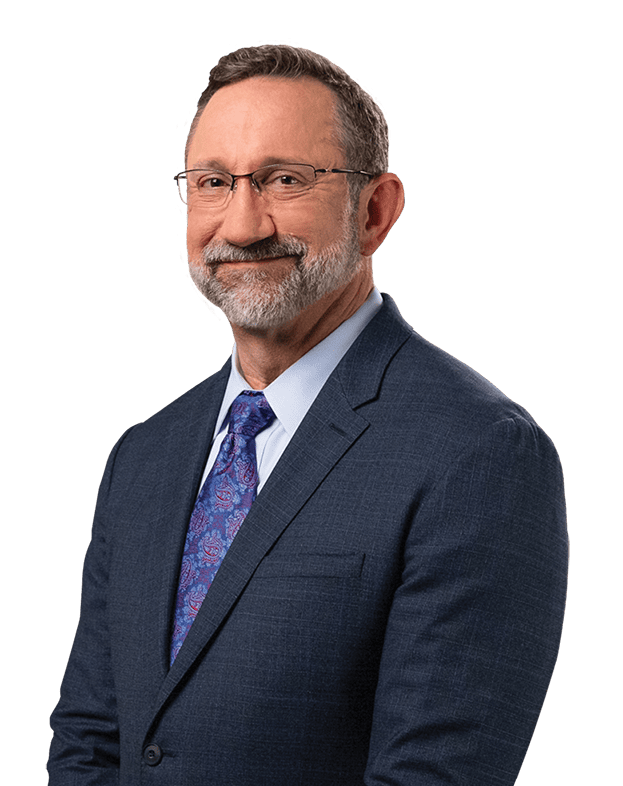07/09/2023
Role of the Vocational Expert at Your Social Security Disability Hearing
Learn about the role of vocational experts at Social Security Disability Hearings from Christine Burnside, Social Security Disability Attorney at Deuterman Law Group.
The Vocational Expert at Social Security Disability Hearing
Hello, my name is Christine Burnside, and I’m a Discapacidad de Seguro Social attorney here with the Deuterman law group. Today I want to talk to you about the vocational expert. The vocational expert is a person who will testify in a disability hearing. So, right now we’re going still by phone or by video for disability hearings.
But even if you were in person, the vocational expert is someone who does usually testify by phone. A vocational expert is not there to decide if you can work. That is not their job. That is the role only of the judge, but a vocational expert is an expert on jobs and they’re there to help us classify the work that you’ve done in the past. One of the first things we have to prove after proving that you have a medical condition and that that medical condition is severe, is that it affects your ability to work in some way.
The Work History Report
After that, we have to prove that you can’t return to any job you’ve had in the last 15 years. And that is the last 15 years from the date of the hearing. And by any job, we mean any job where you worked full time, or you made a significant amount of money, and the law determines how much money you need to have made in that certain year for that job to count.
But we consider the jobs, and you may remember, or maybe you’re just starting out, this process at the beginning of the claim, you’ll fill out a form called the work history report. Now that actually is a very important form because it’s what the vocational expert will use to help them decide what work you did in the past.
The work history form is going to ask for the work that you’ve done in the last 15 years, the names of the jobs. And it’s going to talk about in the form, it’s going to ask you about how much you stood, how much you walked, how much you sat, how much you lifted. And this is all very important information.
So do think carefully and try to remember the best you can, actual physical duties that you had in the job, because it will come into play in the hearing. So the vocational expert is going to use that work history report that you filled out. And we’ll probably also listen to your testimony in the hearing. Many judges will have you talk about your past work in the hearings so they can question you appropriately about it. And then the expert at the end of the hearing is going to classify that work. They’re going to think about the actual title and the things you did in that job.
“The Bookshelf” or Dictionary of Occupational Titles
And then they’re going to consider what’s called a bookshelf. It’s a book called the Dictionary of Occupational Titles. And although it hasn’t been updated in many years, it is what Social Security uses, for the jobs that are available in the United States. So, the expert is going to identify an appropriate classification for the work you’ve done in the past.
They’ll give it an official title, a code, a strength level, and a skill level. And the judge will use that when helping, when making the determination of what you can return to or not, whether you can return to that work or not. So even if it seems pretty self-explanatory, maybe you were a nurses’ aid, a CNA, a certified nursing assistant, and it seems pretty obvious what you did in that job.
We’re pretty familiar with that job. We still have to have the expert give that job an official classification in order for the judge to be able to determine if you can return to it or not.
Setting limitations on your ability in the workplace
The next thing the vocational expert does is they are actually going to answer some questions that are posed by the judge or your attorney or both. And these questions are going to set out certain limitations that someone would have in their ability to do in the workplace.
So, the expert may say, or the judge may say, “I want you to consider a person of the same age, education and work history of the claimant -that’s you — and consider what this person would be able to.” And they’re going to list out some things that this person, you, but not you, this hypothetical person that is like you, they’re going to list out things that this person would be able to do and things that this person wouldn’t be able to do.
And we do consider things, both physical abilities and emotional abilities and abilities about being on task, being able to attend the job, being around other people, things of that nature.
The judge proposes a set of limitations
So, it’s not just the amount you can stand and walk. But the judge is going to propose a set of limitations that this person has. And when we say this person is like you, but it’s not you it’s because we are using your background, right, your age, your work history, and your education level.
So, the hypothetical person we’re talking about does have the same background, but the actual set of limitations that we’re proposing may not sound anything like you. And that is okay. The first thing the judge is going to do is ask a question that probably is going to allow for work. That happens. You shouldn’t panic.
You shouldn’t jump up and say, “Wait, I can’t do that.” Because this is just part of the fact-finding process of the hearing. So, the judge is going to ask a question, and this question is going to have some limitations, but this person’s probably going to be able to do a fair amount, maybe significantly stand and walk more than you have testified that you’re able to. The reason that the judge is going to do that is because the first thing they do is ask this question.
The expert’s response
The expert’s going to say probably, “Yes, there’s work they can do.” And then the expert is going to list out some jobs that someone can do if the judge does not do that. Then when they come to make their decision, basically they will not be able to have the opportunity to say that the person is not disabled.
Most judges are not going to just make the determination that someone’s disabled in the hearing. Even if the judge feels that they’re going to approve you, that approval comes in writing. And it does come in writing after the judge reviews all the medical records and listens to the testimony again.
So, that deliberation is important to the judge. And so, they will usually ask a question that allows for jobs. So, if you’re sitting in the hearing and you hear the judge ask a question of the expert, and then the expert says, “Yes, there’s work that the person can do,” the expert will list three jobs.
This person could be a — I’m not going to give examples here, but they list out three jobs, and then they’ll tell us what the title of the code is and the strength level at the skill level of the job and the amount of the jobs in the United States. They’re not going to tell us the amount of jobs in your region or your state, because that does not matter by law anymore.
But they will tell us how many of those jobs exist in the United States. So, the next thing that’ll happen is the judge may either allow your attorney to ask questions or the judge will continue asking questions and they will propose different limitations. So, often the judge will start out with limitations that allow for jobs.
Adding limitations
And then they’ll start adding in different limitations that are starting to sound okay. More like what you’ve testified to, this person can do less. And then they’ll add in different limitations until at some point, usually several questions in, the expert is going to say, “No, if there’s no work available, if there’s that combination of limitations, there’s going to be no work available.” So, you should remember two things.
The vocational expert is not the person that makes the decision as to whether you could work or not. So, that’s the most important thing to remember, no matter what the vocational expert says. It’s the judge that has to decide what combination of limitations you have that makes your claim.
And so, whether or not the expert says, “Yes, there’s work or no, there’s no work,” it is in the end, the judge who makes the decision of what combination of limitations fits you best. The second thing to remember is that this is all a really normal part of the process. It is absolutely normal to hear the vocational experts say, “Yes, there’s work available.” That does not mean you’re going to lose your case.
It’s just a part of the hearing process. It typically takes the expert about five or 10 minutes to testify. And then when the expert is done, usually that is the end of your hearing. I hope that was helpful. I hope that helps to explain what the vocational expert is.
It’s just an expert on jobs, basically like a walking dictionary of what is okay and not okay in the workforce. What would employers tolerate or not tolerate? If you have any questions, send me a message. And I hope you’re doing well. Thanks so much. Take care.




